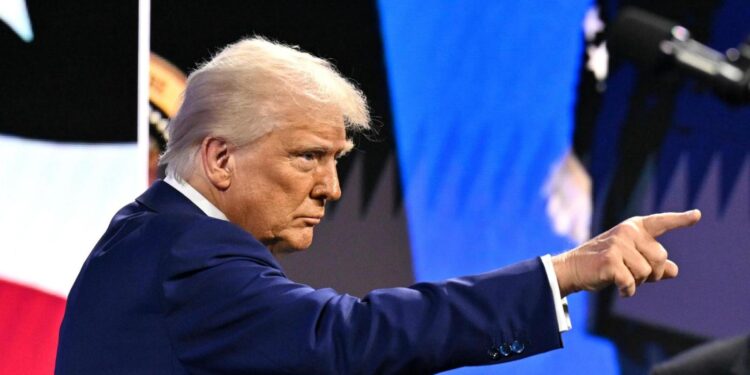
Do President Donald Trump’s actions to date endanger constitutional government? With one exception, not yet. The exception is his pardoning of violent Jan. 6 lawbreakers. Commutations for unsophisticated folk who had been over-sentenced would have been defensible, but impunity for practitioners of political violence is what doomed the Weimar Republic.
But as for Trump’s other actions of concern such as the firing of inspectors general and members of regulatory agencies, there is plenty of historical precedent for presidents making similar efforts that were ultimately rebuffed by the courts when they breached the Constitution.
The theory of the “unitary executive” invented during the George W. Bush administration had already been rejected in the 1935 Supreme Court case Humphrey’s Executor v. United States, which invalidated President Franklin Roosevelt’s firing of a member of the Federal Trade Commission, affirming that the separation of powers was designed not to promote efficiency but to preclude the exercise of arbitrary power, to save the people from autocracy.
Trump has no reason to presume that the 1935 case will be overruled even though two Supreme Court justices, John Roberts and Elena Kagan, were appointed in part because of their previously declared friendliness to executive power.
Although most of Trump’s immigration initiatives should be upheld because of the executive branch’s established role in foreign relations, the anti-commandeering doctrine should bar his efforts to engage state and local police of unwilling jurisdictions in his efforts. The leading cases declaring the doctrine were the work of Justices Antonin Scalia and Sandra Day O’Connor, curbing efforts of Democratic administrations to conscript local officials to the causes of gun control and environmental protection.
The president is not and must not be permitted to command a million state and local police. Hostility to the standing army dictatorship of England’s Earl of Strafford and Oliver Cromwell after him was a major inducement to the enactment of the Bill of Rights, initially conceived as limiting federal but not state powers. The dangers of federal control of law enforcement were a major theme in both the executive and judicial careers of Attorney General and Supreme Court Justice Robert Jackson as well as those of Justice Felix Frankfurter. At the close of the Roosevelt and Truman administrations, notwithstanding the pressures of depression and war, the federal law enforcement establishment was much smaller than it was at the close of the Hoover administration.
The Trump administration’s efforts to impound appropriated funds will ultimately depend on the tolerance of Congress and of public opinion. The Supreme Court ultimately rebuked the Biden administration’s attempted abuse of so-called emergency powers in the student loan and foreclosure and eviction cases, no thanks to the dissenting “liberal” justices.
In seeking revenge on prosecutors and FBI agents, Trump was preceded by the Biden administration’s enthusiasm for what the German emigre scholar Otto Kirchheimer called “trial by fiat of the successor regime.” His disrespect for civil servants is fueled in part by the fact that since the abolition of federal civil service entry exams for all but a few agencies in 1981, America unlike Britain and France no longer has a professional civil service but only hordes of politically appointed bureaucrats rendered impervious from removal.
Nonetheless, the more sweeping efforts to abolish agencies may be curbed by the new “major questions” doctrine explicated most notably by Justice Amy Coney Barrett and the Supreme Court’s repudiation of the so-called Chevron doctrine, with both requiring that major policy changes be made by Congress, not by administrators. This assumes that the court majority will truly enforce the new requirements and that the “liberals” repudiate their short-sighted dissent from them.
The 1930s were an era of great constitutional tumult, resulting in part from a conservative majority’s departure from Chief Justice William Howard Taft’s relatively tolerant view of the federal commerce power and the court’s retreat from initially abusive decisions. But there were, even then, justices who rose beyond partisan allegiances. The court was unanimous in its three famous decisions of May 1935, invalidating federal control of the entire economy under the National Recovery Administration, affirming the rights of secured creditors and limiting presidential control of regulatory agencies. Justice Louis Brandeis’ defense of secured creditors’ rights was recently affirmed, the court’s opinion in the Humphrey’s Executor case still enjoys a precarious life, and the Court’s decisions invalidating delegations of power, unlike its more extreme commerce clause decisions, have enjoyed a recent revival.
Roosevelt was shocked by the unanimity of the 1935 court, including its most ‘liberal” justice, the gentle Benjamin Cardozo. But of all the May 1935 opinions, the one that most lives, and deserves to live, is Justice Cardozo’s opinion in the Schechter case, concurring in the opinion that the powers of Congress had been improperly delegated to Roosevelt’s executive branch rendered barely two years after enactment of Adolf Hitler’s Enabling Act in Germany: “This is delegation running riot. No such plenitude of power is susceptible of transfer.”
George Liebmann (george.liebmann2@verizon.net), writing in his individual capacity, is president of the Library Company of the Baltimore Bar and the author of various works on law and politics, most recently “The Tafts” (Twelve Tables Press, 2023).







